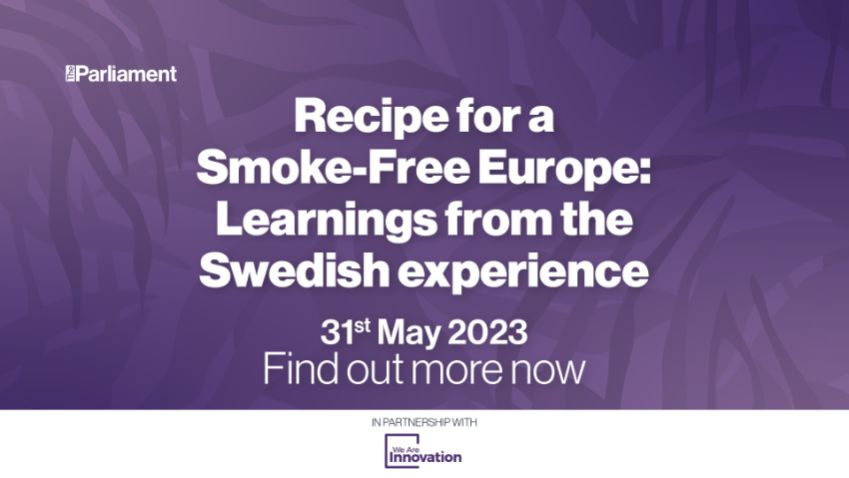The recent opinion poll conducted by Ipsos and commissioned by We Are Innovation has shed new light on why ex-smokers in Sweden are turning to Alternative Nicotine Products (ANPs) and what factors are influencing their decision-making. The study, titled "Swedes’ views on the alternatives to cigarettes. Usage of alternative nicotine products among former cigarette smokers,” provides valuable insights into the motivations behind the growing trend of ANPs usage among former smokers.
The Ipsos survey reveals that health concerns are the primary motivator for ex-smokers in Sweden to switch to ANPs. Although social and financial considerations also play a role, the majority of ex-smokers prioritize their health above all else. Women tend to prioritise social concerns more than men, but health remains the most common reason for switching to ANPs.
Sweden is on track to becoming a smoke-free country in 2023 thanks to the growing trend of ANPs usage among former smokers, as the report “The Swedish Experience. A Roadmap to a Smoke Free Society” indicates. This has resulted in a significant reduction in smoking-related diseases and deaths in the country. In fact, Sweden boasts the lowest incidence of smoking-related diseases and the fewest premature deaths due to tobacco-related causes in Europe. Furthermore, lung cancer fatalities in the country are less than half the EU average, and overall cancer deaths are 38 percent lower. With cancer rates being 41 percent lower than the rest of the EU, these striking figures highlight the substantial impact ANPs have had on public health and individuals' well-being.
Effective anti-smoking policies are being implemented in some countries, while others are lagging behind. In the Netherlands, the government has announced a ban on the sale of all types of nicotine pouches, in addition to expanding tobacco regulations to cover other tobacco-free nicotine products. Meanwhile, the European Union has maintained a ban on snus sales since 1992, indicating a lack of progress towards effective anti-smoking policies. In contrast, not only is Sweden on its way to becoming smoke-free, but the UK government is also implementing proactive measures to combat smoking. Through initiatives such as the 'swap to stop' programme, one million smokers in England are being offered free vapes and support to quit smoking.
The Ipsos & We Are Innovation survey provides valuable insights into the reasons behind the growing trend of ANPs usage among former smokers in Sweden. Health concerns are the primary motivator for ex-smokers to switch to ANPs, access to a diverse range of products, flavors, reasonable nicotine levels, affordable pricing, and personalised options are also important factors.
The availability of a diverse range of ANPs is crucial for quitting smoking. While snus remains the most popular option in Sweden, more people are turning to innovative alternatives such as nicotine pouches and vaping for smoking cessation. This indicates a growing demand for innovative products to help people quit smoking.
When choosing ANPs, consumers prioritise flavor and nicotine levels. Most consumers need to find a product with the right taste and nicotine level that suits their preferences. Interestingly, women tend to emphasize these factors more than men, highlighting the importance of product customisation and personalisation.
Affordable pricing is also crucial for smokers to switch to ANPs. According to the study commissioned by We Are Innovation, 61 percent of ANPs users believe affordable or cheaper options than cigarettes are key to getting smokers to quit. This highlights the need for ANPs to be priced competitively and taxed according to their lower risk to encourage more people to switch.
With more people turning to ANPs, there is a growing need for governments around the globe to support this trend and take a more proactive role in encouraging smokers to quit. By providing more support for innovative and safer nicotine products, decision-makers can help reduce smoking rates and improve public health outcomes.
Want to learn more about Sweden's smoke-free model? Sign up to our upcoming event Recipe for a Smoke-Free Europe: Learnings from the Swedish experience in the European Parliament on 31st May.

Sign up to The Parliament's weekly newsletter
Every Friday our editorial team goes behind the headlines to offer insight and analysis on the key stories driving the EU agenda. Subscribe for free here.